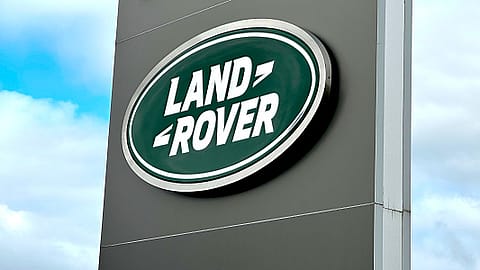Jaguar Land Rover India hits record sales in 2025, with 40% growth as luxury demand soars
The company experienced sustained demand across its entire portfolio throughout the year.

Jaguar Land Rover (JLR) India posted its highest-ever full-year sales in the 17 years since it began operations in the country, the luxury carmaker said on Thursday. It recorded retail sales of 6,183 units in 2025 — a 40% increase over the previous year — while wholesale volumes stood at 1,710 units, marking a 39% rise. In the fourth quarter alone, both wholesale volumes and retail sales doubled to 1,793 and 1,710 units, respectively.
The company experienced sustained demand across its entire portfolio throughout the year. The off-road vehicle Defender emerged as the highest-selling model, with sales nearly doubling. It was followed by the locally manufactured Range Rover and Range Rover Sport SUVs, which saw growth of 72% and 42%, respectively.
While sentiment in the broader automotive market remains tepid, it hasn't deterred wealthy — particularly younger — Indians from spending their disposable income on high-end luxury vehicles.
German luxury carmakers, Mercedes-Benz and BMW also posted record sales this year, as the overall luxury car market in India crossed 50,000 units for the first time. However, market growth was not as robust as in previous years, as economic uncertainty — fuelled by U.S. President Donald Trump’s wave of reciprocal tariffs on both allies and adversaries — dampened consumer sentiment towards discretionary spending.
“JLR India has outpaced the luxury car industry with retail and wholesale growth of around 40% this year, on the back of 81% year-on-year growth in FY24,” said Rajan Amba, Managing Director of JLR India, in a statement.
These sales figures come close on the heels of JLR’s strong global performance for the full year 2025, with the Defender, Range Rover, and Range Rover Sport models accounting for 67.8% of total wholesale volumes. The company also achieved a net cash positive position — a key milestone of its Reimagine strategy, which aims to make the carmaker carbon net zero across its supply chains, products, and operations by 2039.
Meanwhile, a trade deal with the U.S. to lower import tariffs on electric vehicles is reportedly in the works, according to Reuters. If implemented, the tariff cut could pose a significant challenge to the Tata Motors subsidiary, which is not only transitioning to electric mobility but has also made substantial investments in local manufacturing of its portfolio.